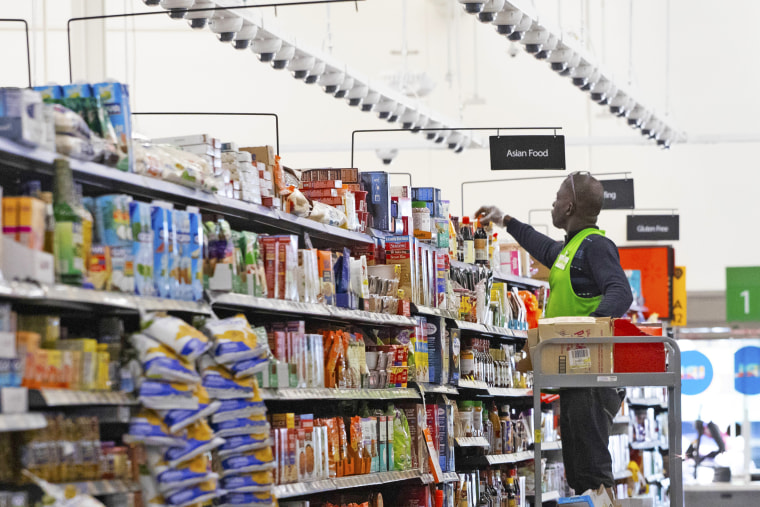Walmart said on Thursday that prices for shoppers will go up due to higher tariffs on imports from China, as the world's largest retailer reported its best comparable sales growth for the first quarter in nine years.
Walmart shares, which have gained 7 percent so far this year, rose 2.4 percent to $102.30 in premarket trade.
President Donald Trump increased tariffs on $200 billion worth of Chinese imports to 25 percent from 10 percent last week. The move is widely expected to raise prices on thousands of products including clothing, furniture and electronics. China retaliated on Monday, announcing it would raise tariffs on $60 billion of American-made imports.
Walmart Chief Financial Officer Brett Biggs told Reuters that higher tariffs will result in increased prices for consumers. He said the company will seek to ease the pain, in part by trying to obtain products from different countries and by working with suppliers' "costs structures to manage higher tariffs."
Moody's analyst Charlie O'Shea said the potential impact on Walmart and its shoppers (from tariffs) is limited by its food business. Its grocery operation, which includes fresh food, contributes roughly 56 percent to overall revenue.
Download the NBC News app for breaking news and politics
"We believe Walmart has the wherewithal both financially and via its vendor relationships to minimize the impact on both itself and its shopping base," he said.
Biggs said the retailer has not seen signs of a slowdown in consumer spending, but he declined to comment on the health of the consumer in the near term.
Investors and analysts expect spending to slow this year against a backdrop of rising debt, tariffs and economic uncertainty.
Retail sales unexpectedly fell in April as households cut back on purchases of vehicles and a range of other goods, reflecting a slowdown in economic growth after a temporary boost from exports and inventories in the first quarter.
Earlier this week, Walmart stepped up its battle with Amazon by offering one-day delivery in some markets without a shipping fee, weeks after Amazon announced a similar plan. Walmart said it will cost the company less than two-day shipping since orders will be delivered from warehouses closer to the customer and arrive in a single box rather than multiple packages.
Store sales rose by 3.4 percent, excluding fuel, in the quarter ended April 30, with online sales up 37 percent.
